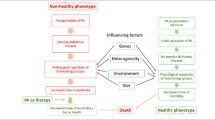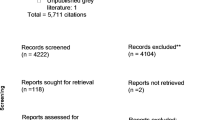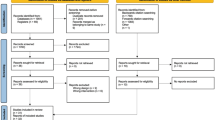Abstract
Background
Multidomain interventions composed of nutritional counseling, exercise and cognitive trainings have shown encouraging results as effective preventive strategies delaying age-related declines. However, these interventions are time- and resource-consuming. The use of Information and Communication Technologies (ICT) might facilitate the translation from research into real-world practice and reach a massive number of people.
Aim
This article describes the protocol of the eMIND study, a randomized controlled trial (RCT) using a web-based multidomain intervention for older adults.
Methods
One hundred and twenty older adults (≥ 65 years), with a spontaneous memory complaint, will be randomly assigned to a six-month web-based multidomain (nutritional counseling, physical and cognitive trainings) intervention group with a connected accelerometer (number of steps, energy expenditure), or to a control group with access to general information on healthy aging plus the accelerometer, but no access to the multidomain intervention. The main outcome is the feasibility/acceptability of the web-based intervention. Secondary clinical outcomes include: cognitive functions, physical performance, nutritional status and cost-effectiveness.
Results
We expect a high amount of adherers (ie, > 75% compliance to the protocol) to reflect the feasibility. Acceptability, assessed through interviews, should allow us to understand motivators and barriers to this ICT intervention. We also expect to provide data on its effects on various clinical outcomes and efficiency.
Conclusion and discussion
The eMIND study will provide crucial information to help developing a future and larger web-based multidomain lifestyle RCT, which should facilitate the translation of this ICT intervention from the research world into real-life clinical practice for the healthcare of older adults.
Similar content being viewed by others
References
Andrieu S, Coley N, Lovestone S et al (2015) Prevention of sporadic Alzheimer’s disease: lessons learned from clinical trials and future directions. Lancet Neurol 14:926–944
Rakesh G, Szabo ST, Alexopoulos GS et al (2017) Strategies for dementia prevention: latest evidence and implications. Ther Adv Chronic Dis 8:121–136
Colcombe S, Kramer AF (2003) Fitness effects on the cognitive function of older adults: a meta-analytic study. Psychol Sci 14:125–130
Tsai CL, Wang CH, Pan CY et al (2015) The effects of long-term resistance exercise on the relationship between neurocognitive performance and GH, IGF-1, and homocysteine levels in the elderly. Front Behav Neurosci 9:23
Pothier K, Bherer L (2016) Physical training. In: Cognitive training. Springer International Publishing, New York, pp 145–153
Young J, Angevaren M, Rusted J et al (2015) Aerobic exercise to improve cognitive function in older people without known cognitive impairment. Cochrane Database Syst Rev (4):CD005381
Kelly ME, Loughrey D, Lawlor BA et al (2014) The impact of exercise on the cognitive functioning of healthy older adults: a systematic review and meta-analysis. Ageing Res Rev 16:12–31
Hardman RJ, Kennedy G, Macpherson H et al (2016) Adherence to a Mediterranean-style diet and effects on cognition in adults: a qualitative evaluation and systematic review of longitudinal and prospective trials. Front Nutr 3:22
Morris MC, Tangney CC, Wang Y et al (2015) MIND diet associated with reduced incidence of Alzheimer’s disease. Alzheimer’s Dement 11:1007–1014
Lampit A, Hallock H, Valenzuela M (2014). Computerized cognitive training in cognitively healthy older adults: a systematic review and meta-analysis of effect modifiers. PLoS Med 11:e1001756
Yates LA, Ziser S, Spector A et al (2016) Cognitive leisure activities and future risk of cognitive impairment and dementia: Systematic review and meta-analysis. Int Psychogeriatr 28:1791–1806
Kivipelto M, Solomon A, Ahtiluoto S et al (2013) The Finnish geriatric intervention study to prevent cognitive impairment and disability (FINGER): study design and progress. Alzheimer’s Dement 9:657–665
Vellas B, Carrie I, Gillette-Guyonnet S et al (2014) MAPT study: a multidomain approach for preventing Alzheimer’s disease: design and baseline data. J Prev Alzheimer’s Dis 1:13
Richard E, Van den Heuvel E, van Charante EPM et al (2009) Prevention of dementia by intensive vascular care (PreDIVA): a cluster-randomized trial in progress. Alzheimer Dis Assoc Disord 23:198–204
Ngandu T, Lehtisalo J, Solomon A et al (2015) A 2 year multidomain intervention of diet, exercise, cognitive training, and vascular risk monitoring versus control to prevent cognitive decline in at-risk elderly people (FINGER): a randomised controlled trial. Lancet 385:2255–2263
Andrieu S, Guyonnet S, Coley N et al (2017) Effect of long-term omega 3 polyunsaturated fatty acid supplementation with or without multidomain intervention on cognitive function in elderly adults with memory complaints (MAPT): a randomised, placebo-controlled trial. Lancet Neurol 16:377–389
van Charante, EPM, Richard E, Eurelings LS et al (2016) Effectiveness of a 6-year multidomain vascular care intervention to prevent dementia (preDIVA): a cluster-randomised controlled trial. Lancet 388:797–805
Folstein MF, Folstein SE, McHugh PR (1975) “Mini-mental state”: a practical method for grading the cognitive state of patients for the clinician. J Psychiatr Res 12:189–198
Guigoz Y, Jensen G, Thomas D et al (2006) The mini nutritional assessment (mna®) review of the literature-what does it tell us?/discussion. J Nutr Health Aging 10:466
Guralnik JM, Simonsick EM, Ferrucci L et al (1994) A short physical performance battery assessing lower extremity function: association with self-reported disability and prediction of mortality and nursing home admission. J Gerontol 49:M85–M94
Lussier M, Brouillard P, Vrinceanu T et al (2018) Normative data for a tablet-based executive functions assessment battery in healthy older adults. J Clin Exp Neuropsychol (JCEN# JCEN-OA 17-195) (submitted)
Grober E, Buschke H (1987) Genuine memory deficits in dementia. Dev Neuropsychol 3:13–36
Wechsler D (1981) WAIS-R manual: wechsler adult intelligence scale-revised. Psychol Corp
Benton AL (1967) Problems of test construction in the field of aphasia. Cortex 3:32–58
de Souto Barreto P (2013) Construct and convergent validity and repeatability of the Questionnaire d’Activité Physique pour les Personnes Âgées (QAPPA), a physical activity questionnaire for the elderly. Public health 127:844–853
Essink-Bot ML, Stouthard ME, Bonsel GJ (1993) Generalizability of valuations on health states collected with the EuroQolc-questionnaire. Health Econ 2:237–246
Chevalier J, de Pouvourville G (2013) Valuing EQ-5D using time trade-off in France. Eur J Health Econ 14:57–66. https://doi.org/10.1007/s10198-011-0351-x (Epub 2011 Sep 21)
Giordano A, Bonometti GP, Vanoglio F et al (2016) Feasibility and cost-effectiveness of a multidisciplinary home-telehealth intervention programme to reduce falls among elderly discharged from hospital: study protocol for a randomized controlled trial. BMC Geriatr 16:209
Acknowledgements
We would like to thank Arnaud Lendrieux (Direction de la Recherche et de l’Innovation, CHU-Toulouse), and Kathia Saillant who greatly contributed to the elaboration of this project.
Funding
This pilot study is supported by the Fondation pour la Recherche Médicale (FRM DOC20161136208; ID RCB number: 2017-A01018-45). The Centre Hospitalier Universitaire of Toulouse (CHU-Toulouse) is the sponsor of the study (protocol ID: 17 0071).
Author information
Authors and Affiliations
Corresponding author
Ethics declarations
Conflict of interest
The authors declare no conflict of interest. The sponsor, the funding agency and the French society that elaborated the eMIND web platform MHComm© had no role in designing this study and will not have any role in the execution of the intervention, in the analyses and interpretation of the data or in the decision to submit results.
Ethical approval
All procedures that will be performed in this pilot study involving human participants are in accordance with the ethical standards of the institutional and/or national research committee (CPP Tours—Région Centre—Ouest 1. Registration Number: 2017T2-10) and with the 1964 Helsinki declaration and its later amendments or comparable ethical standards.
Informed consent
Signed informed consent will be obtained from all participants before baseline assessments.
Rights and permissions
About this article
Cite this article
Pothier, K., Soriano, G., Lussier, M. et al. A web-based multidomain lifestyle intervention with connected devices for older adults: research protocol of the eMIND pilot randomized controlled trial. Aging Clin Exp Res 30, 1127–1135 (2018). https://doi.org/10.1007/s40520-018-0897-x
Received:
Accepted:
Published:
Issue Date:
DOI: https://doi.org/10.1007/s40520-018-0897-x




